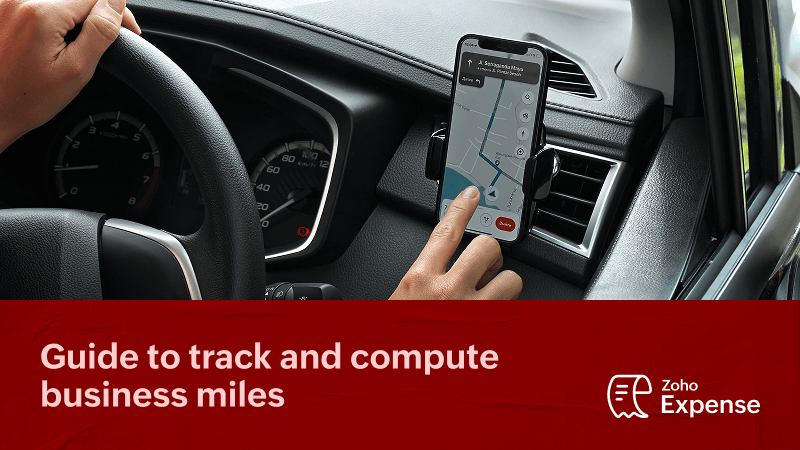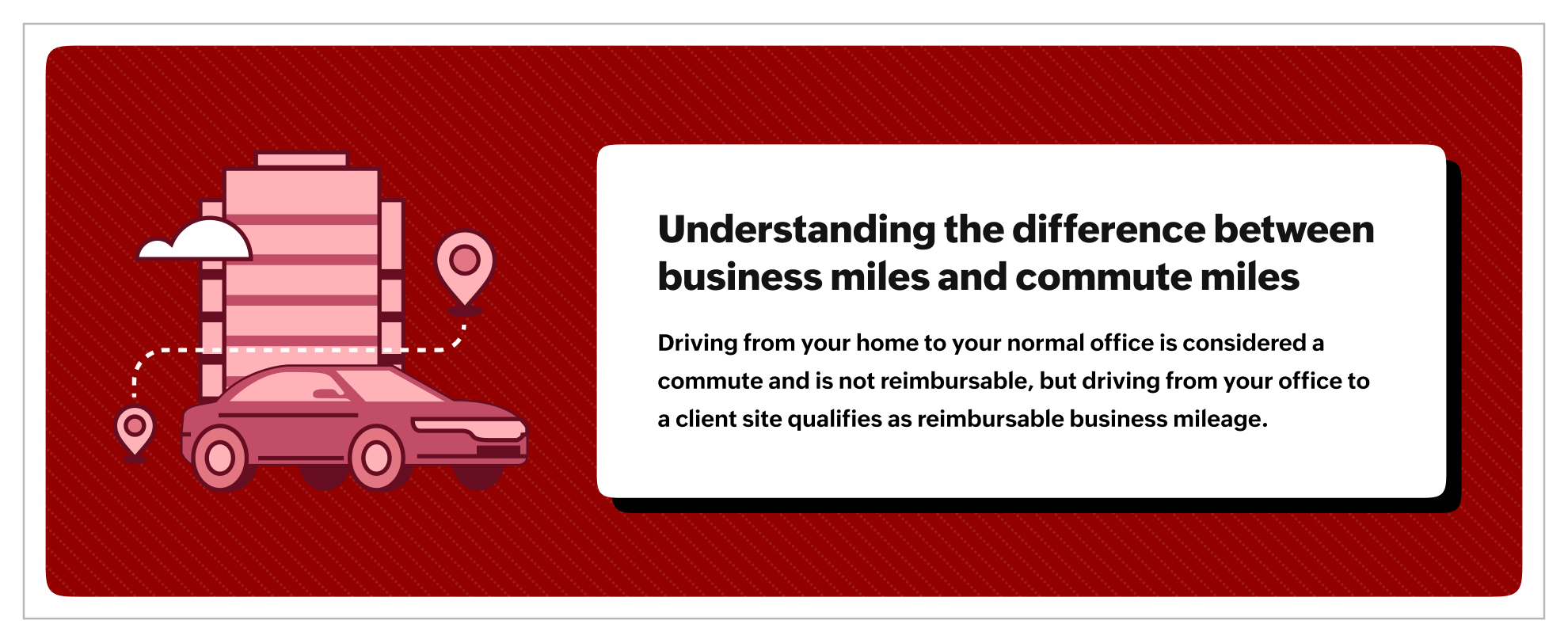- HOME
- Expense Management
- Business miles: Everything that finance teams need to know to compute business miles for reimbursement
Business miles: Everything that finance teams need to know to compute business miles for reimbursement
Tracking business mileage is essential for companies to ensure cost efficiency and compliance. Since this is a mandatory business expense, it's important to understand how to compute business miles effectively and how beneficial doing so can be for an organization.
Since vehicle expenses are part of ongoing operation expenses, according to the Internal Revenue Service (IRS), companies are allowed a reimbursement for their business miles. Similarly, employees might use their personal vehicles for business needs, and companies would need to track them effectively to have them reimbursed.
In order to compute the expenses effectively, you need to understand what constitutes business miles, how they are different from other miles, and the best practices involved in complying with IRS requirements.

What are business miles?
The IRS defines business miles as the distance traveled from one workplace to another.
Here are some common examples that qualify as business miles:
Visiting customers, clients, or prospects for sales or relationship meetings.
Attending offsite events, conferences, or trade shows.
Traveling between different work locations or offices when it's not a part of the daily office commute.
Driving to the airport to catch a flight for a business purpose.
Commuting to the airport to pick up a co-worker for a business meeting.
This includes when employees use their vehicle for business commutes. To learn more about mileage reimbursement and the IRS rules for 2025, check out our blog post on business reimbursements for 2025.![]()
Understanding the difference between business miles and commute miles
Business miles are the distance traveled by employees for work-related purposes. This includes client visits, offsite meetings, or travel between multiple job sites during a workday.
Commute miles are the miles driven between an employee's home and their regular place of work. These miles are not eligible for reimbursement or tax deductions.
To clarify further: Driving from your home to your normal office is considered a commute and is not reimbursable, but driving from your office to a client site qualifies as reimbursable business mileage.

IRS exceptions: When commute miles are applicable for tax deductions
Although commute miles can't be deducted, according to IRS Publication 587, there are a few exceptions under certain conditions.
Temporary work locations
If an employee travels to a temporary workplace that is not their assigned regular place of work, then these commutes may be deductible.
Example: An employee is assigned to work on a short-term project at a client location for a particular project for a few weeks or months; the travel to and from that location would be considered for reimbursements.
Note: This period of work cannot last more than one year.
Home office as primary workplace
If the employee's primary place of business is a qualified home office, trips from home to other business locations may count as business mileage.
Example: An employee who works primarily from home drives to visit a client office once a week; these miles can be considered business miles as the trip is related to their nature of work.
Traveling between multiple jobs
If an individual works two jobs in one day for different employers or roles, the travel between the two workplaces can qualify as deductible business mileage.
Example: Assuming an employee finishes their morning shift at Job A and then drives to Job B, the miles between Job A and B are eligible for reimbursement or tax deduction. However, the commute from home to the first job and from the second job back home still counts as personal commuting and is not deductible.
Want to get an estimate of what your mileage reimbursement could be for 2025? Check out Zoho Expense's mileage reimbursement calculator today!
How to compute business miles
Tracking business miles is crucial for cost savings and compliance. It starts with employees needing to record their ride logs accurately and odometer readings for each of their business rides. It is also equally important to ensure employees are well informed to exclude any portion of the trip taken for personal reasons.
However, this method of recording manual logs is prone to errors, as companies are open to accusations for fraudulent claims and inaccurate reporting.
The IRS also requires businesses to maintain certain records and follow prescribed methods when calculating reimbursements. Check out this article that discusses how to record business mileage reimbursements and best practices for employees, employers, and employed individuals.
Manage your business miles and mileage tracking accurately with Zoho Expense
Effective mileage tracking starts with a clear understanding of what qualifies as business travel and is strengthened by the right tools and processes.
With Zoho Expense's automated mileage tracking feature, employees can automatically capture all their ride logs. Employees can exclude personal rides and submit them for easy reimbursement. Admins can configure workdays and work hours to exclude personal rides. Zoho Expense supports IRS mileage rates and lets you configure custom mileage rates based on your company's policy.
- Neil Varshiney
A focussed marketer and seasoned Fintech writer helping finance professionals and business owners to find and help them evaluate the right tech stack to run their operations effectively.
